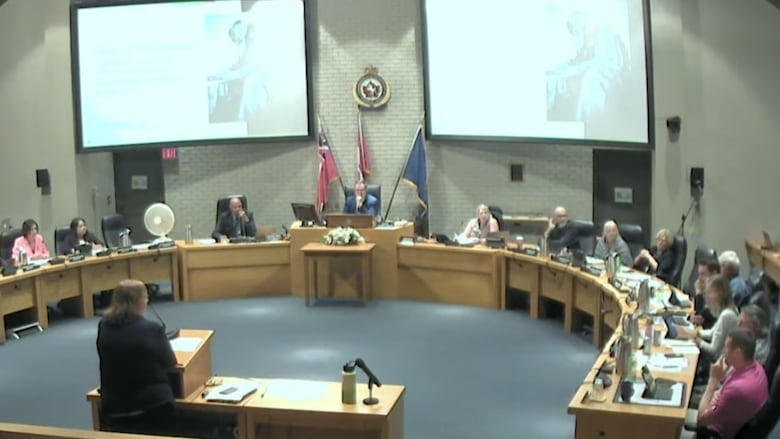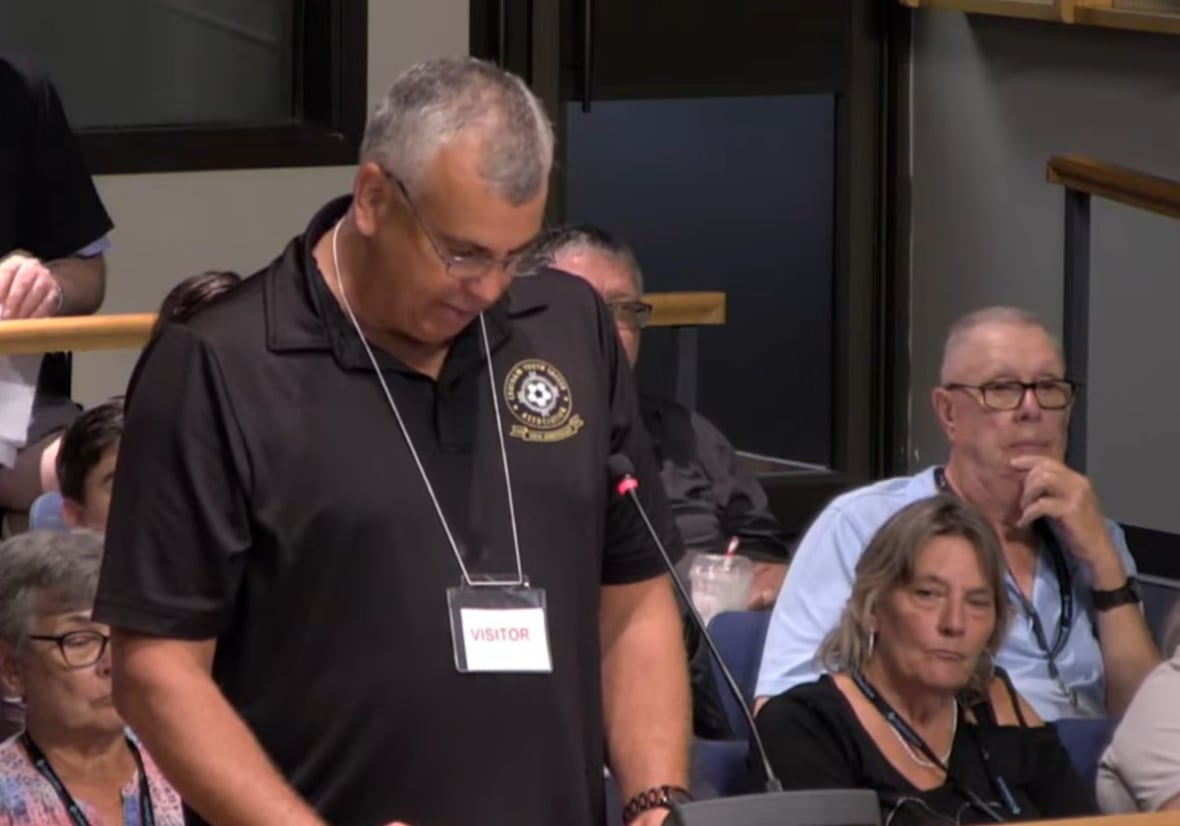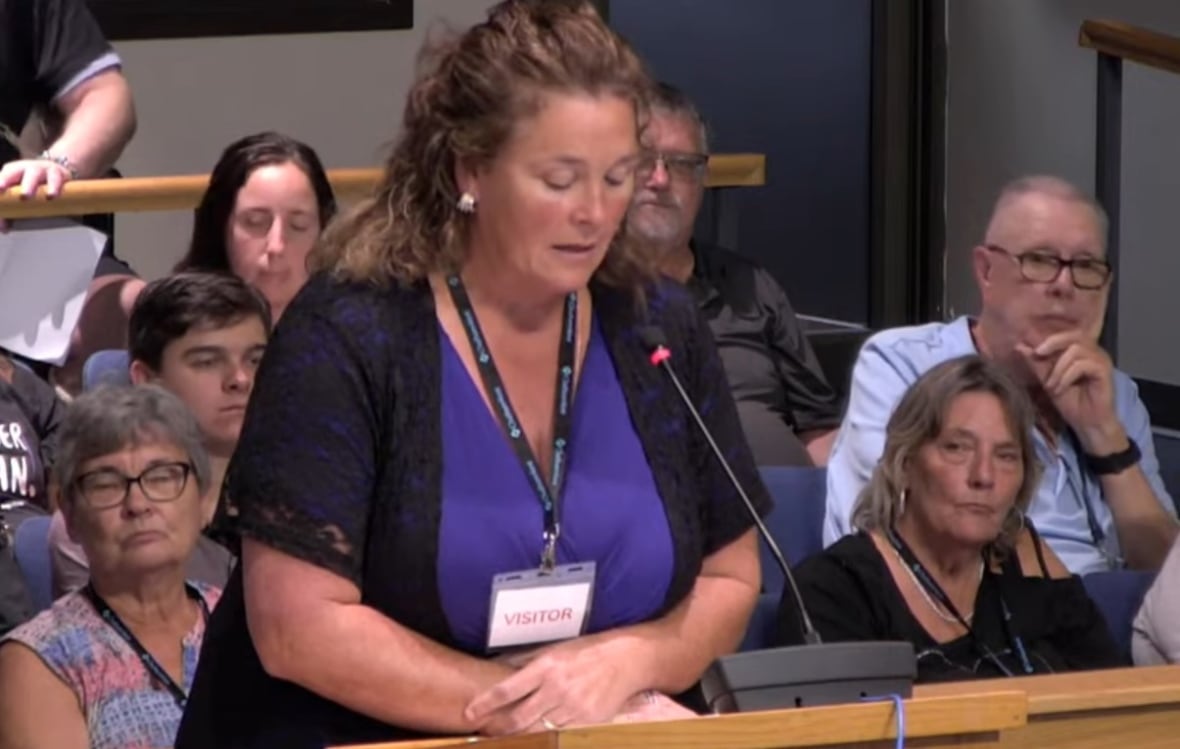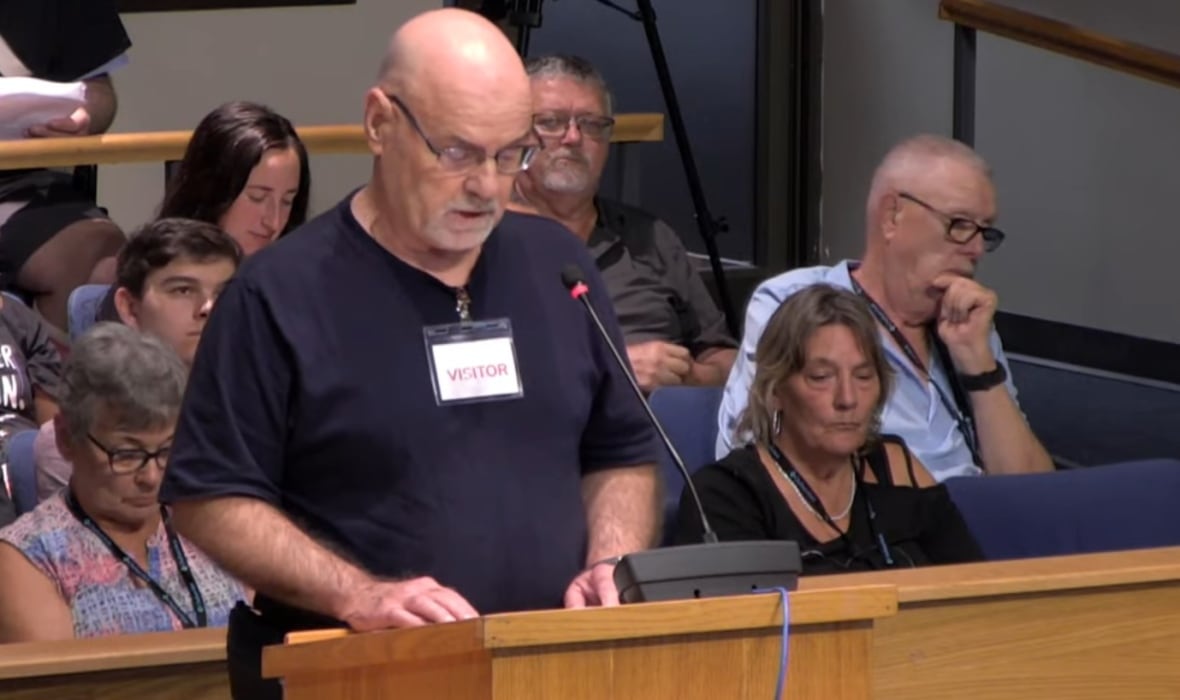Chatham-Kent council defers decision on possible encampment relocation
Council asked staff to report on where homeless people could go if rules change

Residents of a Chatham-Kent homeless encampment will have to wait until next month to find out if they have to move again.
Municipal council voted to defer a decision that could relocate the encampment on the Public Utilities Commission (PUC) lands.
Councillors passed a motion at a special meeting Monday night to have staff prepare a report outlining which municipal properties homeless people could camp on if they had to stay up to 100 metres away from residential properties.
Staff will present options specific to the community of Chatham at council's August meeting and to the rest of the communities in the municipality in September.
"My reason for asking for this is just to make sure that we don't repeat what just happened," said Coun. Allyson Storey, referring to the outcry from neighbours of the PUC lands that precipitated Monday's special meeting.
"It is not an attempt to delay," Storey said.
Where else could campers go?
Many homeowners near the PUC lands say they were blindsided by the arrival of the campers approximately two weeks ago after the municipality broke up an encampment on the riverfront to make way for slope stabilization work.
They told councillors Monday they were angry at not having been consulted over decisions about where campers could move.
Storey's motion was a response to a motion by Mayor Darrin Canniff, which proposed amending Chatham-Kent's encampment protocol to prohibit camping within 100 metres of a residential property.
Currently, the proscribed distance is within 10 metres.

Storey said she wanted to know what options would be available to campers if the set-back radius was set at 25, 50 or 100 metres — and to give residents a chance to weigh in on any changes.
If council had passed Canniff's motion as moved, there would only be two places in all of Chatham where homeless people could camp, Bruce McAllister told councillors.
"It would be Thames Grove," said the municipality's general manager of development services.
"If you go to 100 metres, you could still accommodate at the very southeast corner of the property a number of tents there. … The other potential option is Paxton's Bush."
Councillors did adopt the remaining components of Canniff's motion, which laid out a number of measures aimed at eliminating homelessness and reducing complaints about encampments in the meantime.
Those steps include:
-
Requesting that staff prepare reports on options for delivering permanent supportive housing and more transitional cabins; identify properties that could be converted into supportive housing; and engage partner organizations such as mental health service providers to provide services in encampments.
-
Transitioning as many homeless people as possible into the municipality's new transitional cabins.
-
Continuing to work with R.O.C.K. (Reach Out Chatham-Kent) to house as many homeless people as possible.
-
Permitting only one tent per person in encampments and requiring all possessions to be kept inside tents except for bicycles and small structures for pets.
-
Hiring additional bylaw officers to enforce bylaws in encampments.
-
Having police install CCTV cameras as needed at their discretion.
-
Beginning regular communication with residents in the area around the PUC property.
Councillors did not consider a motion put forward by Coun. Michael Bondy, which would've required campers to dismantle their campsites and disperse during daytime hours.
The four-hour meeting opened with 17 delegations from neighbours of the encampment and advocates for homeless people.
Some residents expressed concern about their property values and spoke of feeling unsafe in their neighbourhoods.
They complained of garbage, vandalism and attempted break-ins.

"When it was announced that the homeless population of Chatham would be relocated to the waterworks facilities, many teams decided they would no longer practice at that location," said John Foster, president of the Chatham Soccer Club.
"Many parents are concerned with their children using a facility with such close proximity to possible drug use exposure, drug paraphernalia hazards, lewd behaviour ... including going to the washroom in public fully exposed."
But some residents also said they wanted better solutions than to simply move the encampment to another neighbourhood.
Larry Hutchins called for increased policing, 24-hour security and regular reports about addressing neighbourhood concerns.
Advocates for the homeless, meanwhile, urged residents to view homeless individuals as members of their community who have had to resort to camping in public spaces because of systemic failures to address poverty, mental health issues and addiction.
The general manager of Chatham Hope Haven said many of her clients live in the encampment, and they don't like it any more than their neighbours do because they are farther from the services they need for survival.
It's absurd to think that moving them will help, Loree Bailey said.
"I get being angry," she said.
"I'm really angry too. I'm angry at every single system that these folks rely on to live being broken."
Priest and soup kitchen volunteer Michael Bolohan urged the community to go beyond managing the housing crisis to experiencing what he called a "conversion of heart."

"The ego driven part of us, obsessed with control, comfort and certainty, will always resist the presence of those who disrupt our illusions of safety and prosperity," he said.
"Encampments do just that. They confront us with the failure of our systems, fragility of human life, and the lie that success and worth is the same thing."